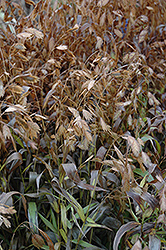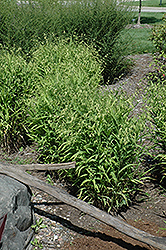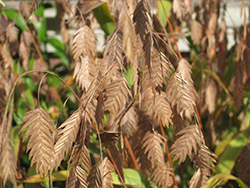


| Phone: |
| 613-599-3419 |
| Email: |
| info@makeitgreen.ca | Location: |
| 5200 Flewellyn Rd. Stittsville, Ontario
Need Directions? Click for map |
Welcome to our plant search tool. This database contains many of the thousands of plants that we carry. There are some notable exceptions. Hundreds of new perennials come out every year and Make It Green has been a leader in making them available to you. Eventually the recent introductions will make it to our plant search tool but every year there will be a lag between our in-store plant selection and this search tool. Unfortunately this search tool can't cover everything that we will carry this year. We also carry over 100 varieties of rare and unusual evergreens and over 100 varieties of hard-to-find shrubs many of which are not in the plant search. Click on the Plant List button for a list of nearly all the woody plants (trees, shrubs and evergreens) that we have ordered or already have in stock for this coming year.
Height: 5 feet
Spread: 30 inches
Sunlight:
![]()
![]()
Hardiness Zone: 4a
Other Names: Uniola latifolia
Description:
This grass is grown for its lovely drooping hop-like seed heads that flutter in the wind; the seed heads mature to a purple-bronze color and make a nice accent when left on through the winter; use for fresh and dried flower arrangements
Ornamental Features
Northern Sea Oats is primarily grown for its highly ornamental fruit. It produces abundant clusters of purple hop-like fruit from late summer to late fall. It grassy leaves are light green in colour. As an added bonus, the foliage turns a gorgeous coppery-bronze in the fall.
Landscape Attributes
Northern Sea Oats is an herbaceous perennial grass with a shapely form and gracefully arching stems. Its medium texture blends into the garden, but can always be balanced by a couple of finer or coarser plants for an effective composition.
This is a relatively low maintenance plant, and is best cleaned up in early spring before it resumes active growth for the season. It has no significant negative characteristics.
Northern Sea Oats is recommended for the following landscape applications;
- Accent
- Mass Planting
- Border Edging
- General Garden Use
- Naturalizing And Woodland Gardens
- Container Planting
Planting & Growing
Northern Sea Oats will grow to be about 4 feet tall at maturity, with a spread of 30 inches. Its foliage tends to remain dense right to the ground, not requiring facer plants in front. It grows at a medium rate, and under ideal conditions can be expected to live for approximately 10 years. As an herbaceous perennial, this plant will usually die back to the crown each winter, and will regrow from the base each spring. Be careful not to disturb the crown in late winter when it may not be readily seen!
This plant does best in full sun to partial shade. It is quite adaptable, prefering to grow in average to wet conditions, and will even tolerate some standing water. It is not particular as to soil type or pH. It is somewhat tolerant of urban pollution. This species is native to parts of North America.
Northern Sea Oats is a fine choice for the garden, but it is also a good selection for planting in outdoor pots and containers. Because of its height, it is often used as a 'thriller' in the 'spiller-thriller-filler' container combination; plant it near the center of the pot, surrounded by smaller plants and those that spill over the edges. It is even sizeable enough that it can be grown alone in a suitable container. Note that when growing plants in outdoor containers and baskets, they may require more frequent waterings than they would in the yard or garden. Be aware that in our climate, most plants cannot be expected to survive the winter if left in containers outdoors, and this plant is no exception. Contact our experts for more information on how to protect it over the winter months.




